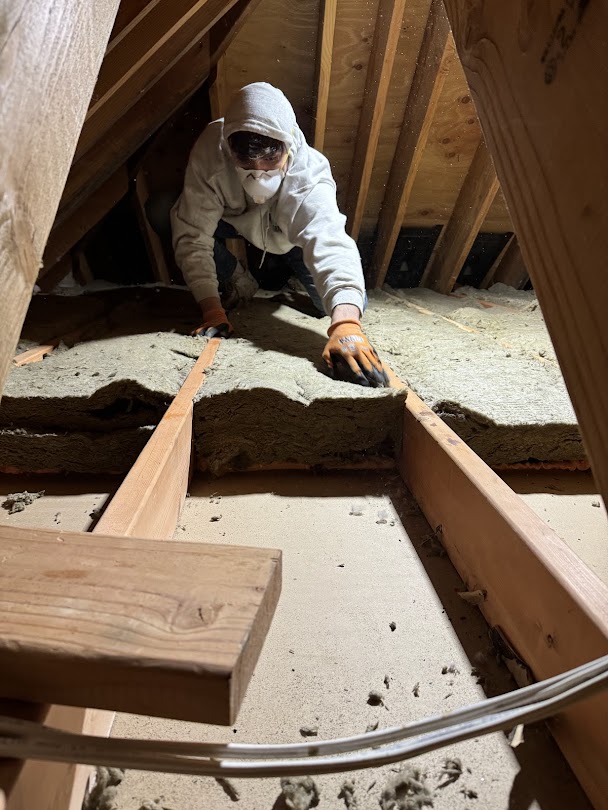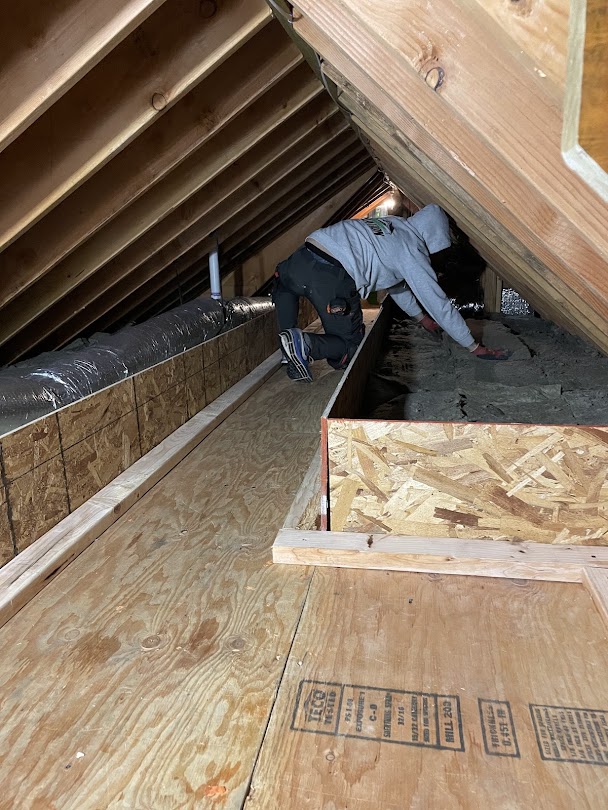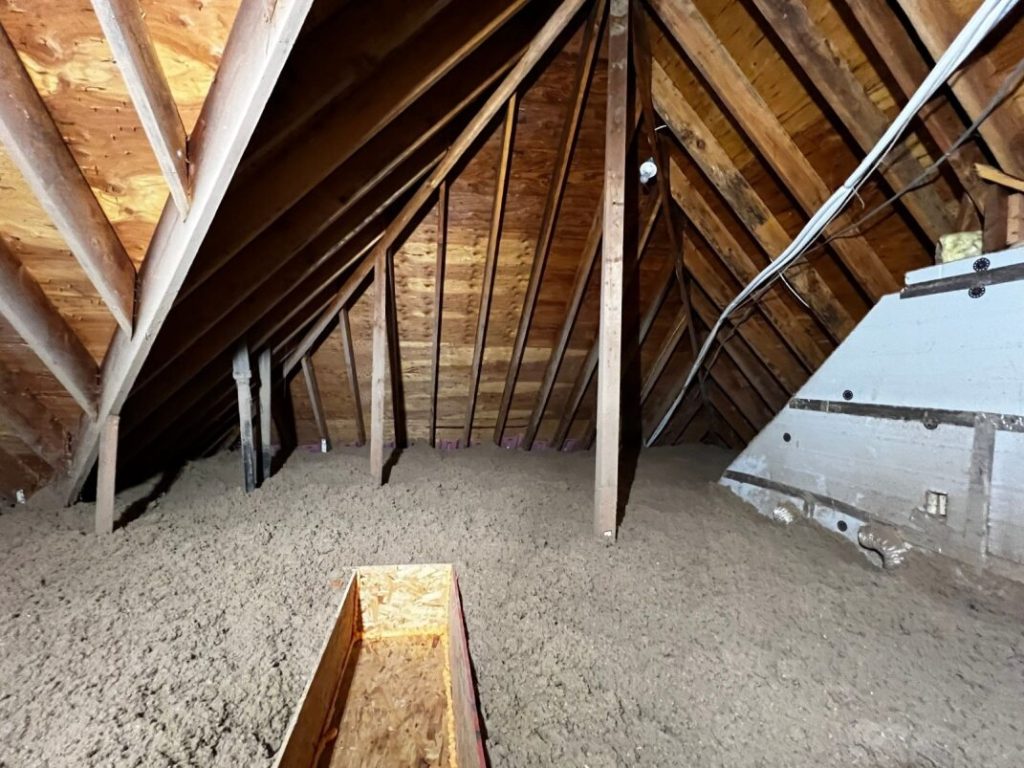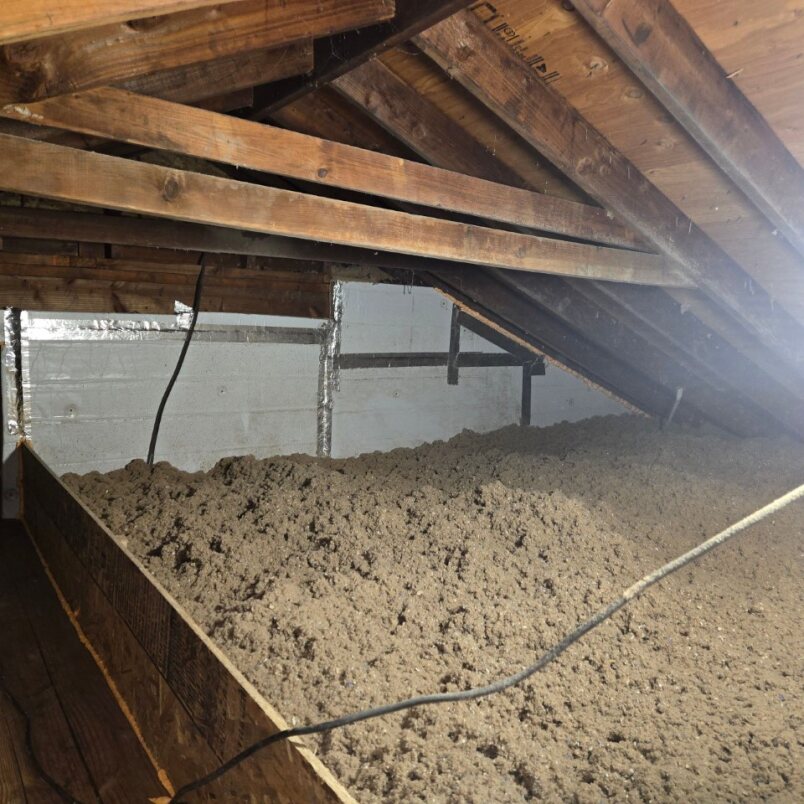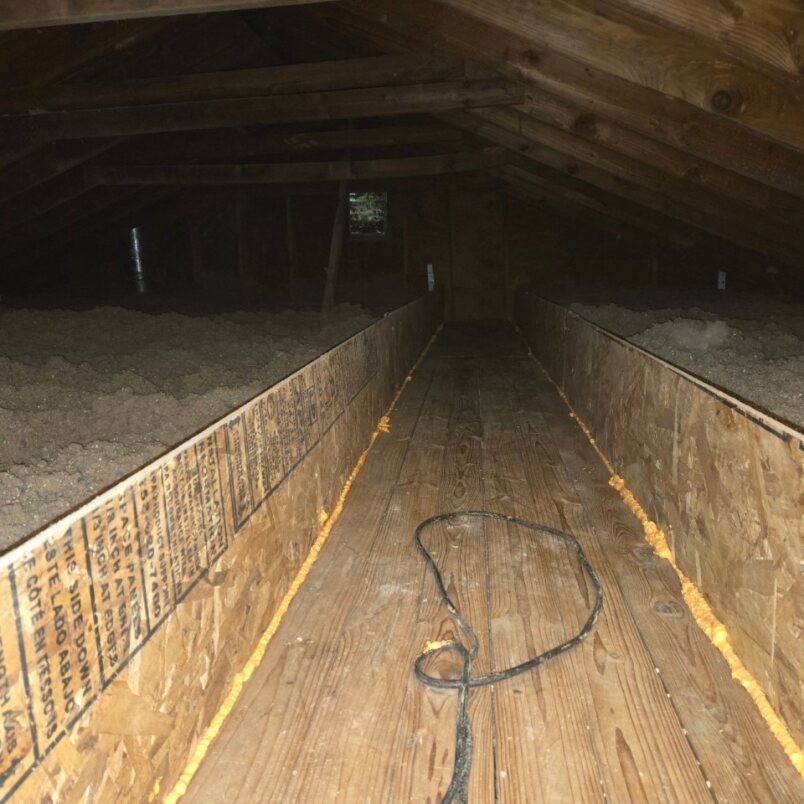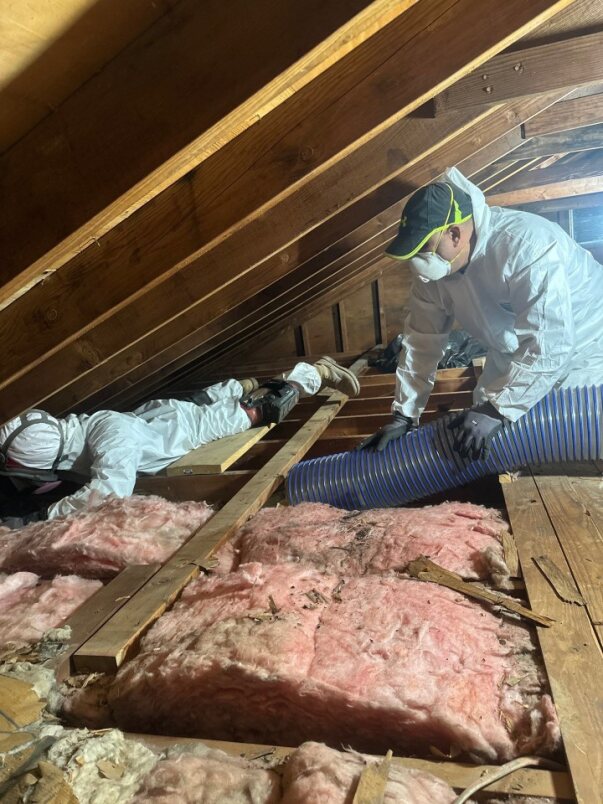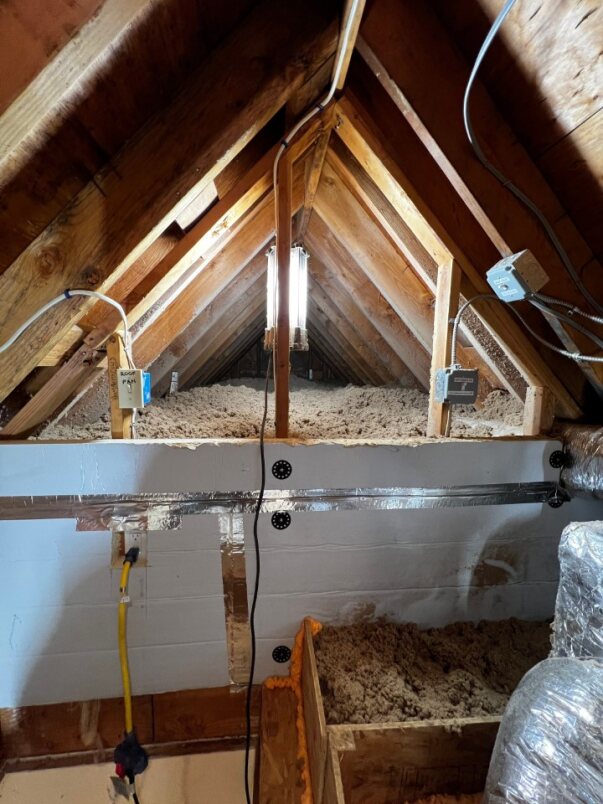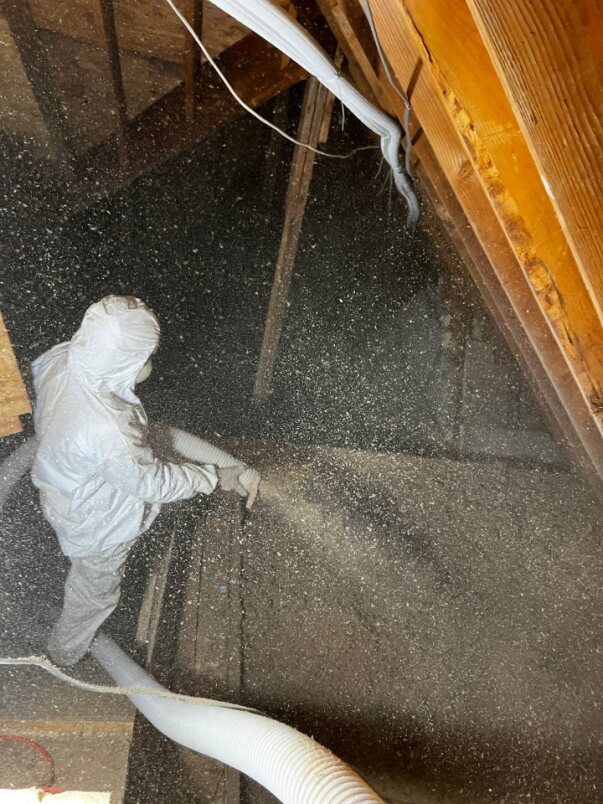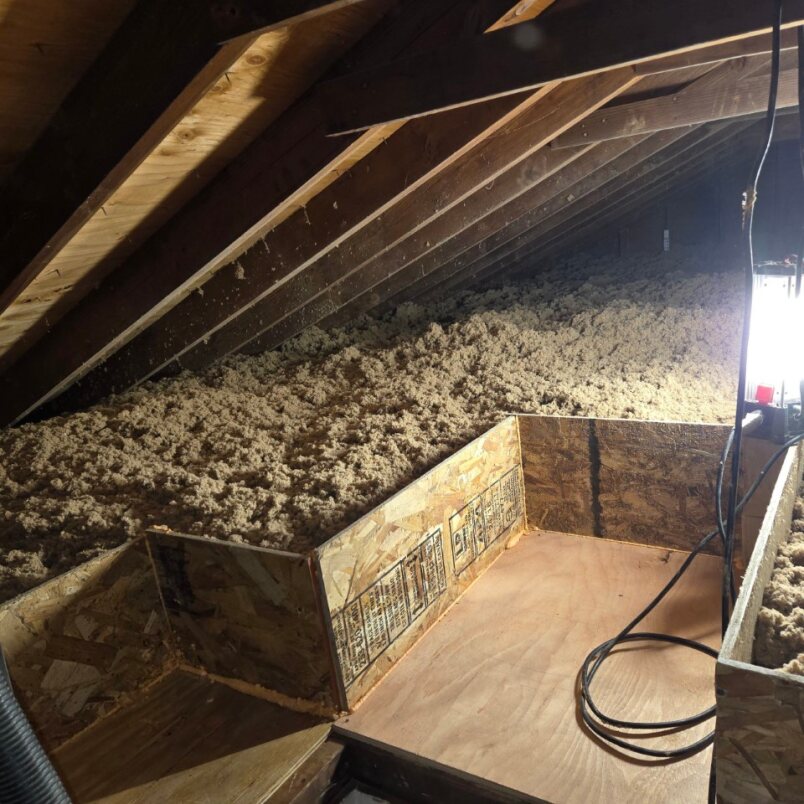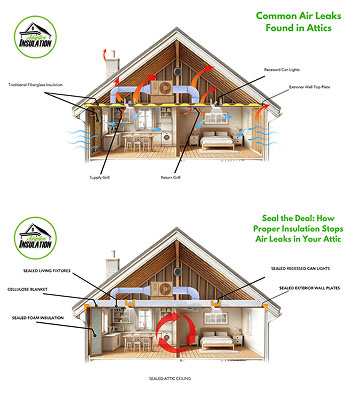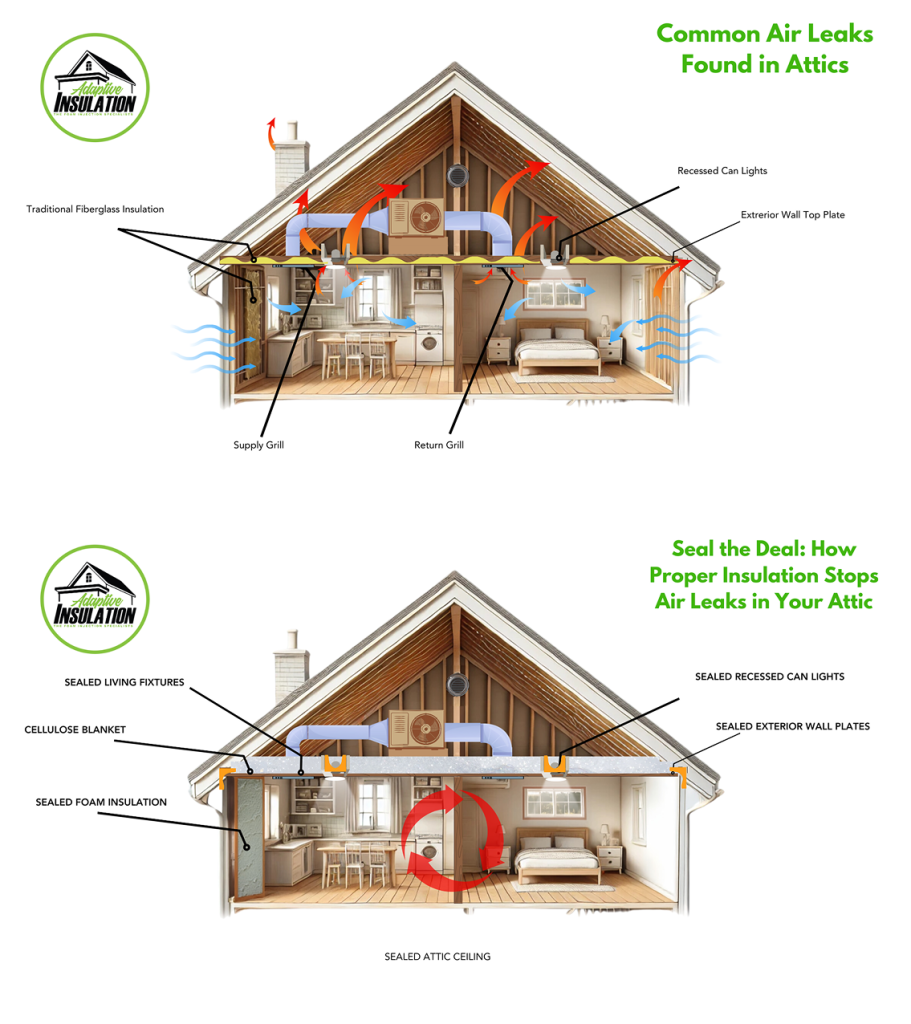Why attic insulation matters
Why attic insulation matters
Attics are commonly the most poorly insulated areas of a home. Without adequate insulation and ventilation in your attic, conditioned air can escape rapidly, making it harder—and more costly—to maintain a comfortable temperature throughout both winter and summer. Besides allowing heat to escape during cold months, a poorly insulated attic significantly contributes to the development of ice dams, icicles, and mold, all of which pose potential health and safety risks to your family and property.
Request a Free Home Estimate
Attic Insulation Benefits
Reduced Energy Expenses
Improved efficiency translates to a reduction in your energy expenses, leading to substantial savings over time. By optimizing energy use, you can lower your utility costs, resulting in financial benefits that accumulate over the long term. This increased efficiency not only helps to decrease your monthly energy bills but also contributes to more sustainable energy consumption practices.
Prevention of Ice Dams, Icicles, Mold or mildew growth
Adequate insulation in your attic plays a crucial role in preventing the development of ice dams, icicles, and mold or mildew growth. By ensuring proper attic insulation, you effectively regulate temperature fluctuations and moisture levels, which helps to inhibit the conditions that lead to these issues. This not only protects your home’s structural integrity but also prevents potential health hazards associated with mold and mildew, thereby maintaining a healthier living environment and preserving the longevity of your property.
Make Sure to Air Seal First!
Blown-in insulation, when loosely filled, is not an air barrier. This is why it's important to air seal the attic floor. Without it, air moves through the insulation, making it less effective at keeping your home comfortable and saving you money.
Get Started
Meet with one of our Home Assessment Professionals to learn how we can help your home be more comfortable and energy efficient this winter.

